Cancer Treatment
Best hospitals and doctors for cancer treatment abroad
Focus of treatment:
- Acute lymphoblastic leukemia
- Acute myeloid leukemia
- Adrenal cancer
- Aggressive t-cell lymphoma
- Appendix cancer
- Bladder cancer
- Breast cancer
- Burkitt lymphoma
- Cancer of the bladder neck
- Cancer of Unknown Primary (CUP)
- CAR T-cell therapy
- Cervical cancer
- Cervical paraganglioma
- Chemoembolization
- Chemotherapy
- Cholangiocarcinoma (Klatskin tumor)
- Choriocarcinoma
- Chronic lymphocytic leukemia (CLL)
- Chronic myelogenous leukemia
- Clear cell renal carcinoma
- Colon cancer
- Dermatofibrosarcoma
- Duodenal cancer
- Ear cancer
- Endometrial cancer (uterine cancer)
- Esophageal cancer
- Ewing sarcoma
- Gastrointestinal carcinoid tumors
- Giant cell fibroblastoma (gcf)
- Glioblastoma
- Hodgkin lymphoma
- Infantile fibrosarcoma
- Jaw cancer
- Juvenile nasopharyngeal angiofibroma
- Kidney cancer (renal cell cancer)
- Laryngeal cancer
- Liver cancer
- Liver metastases
- Lung cancer
- Mediastinal tumor
- Melanoma
- Mesothelioma
- Metastatic prostate cancer
- Multiple Myeloma
- Nasopharyngeal cancer
- Nephroblastoma (wilms tumor)
- Neuroblastoma (ganglioneuroblastoma)
- Neuroendocrine tumors (NETs)
- Non-Hodgkin lymphoma
- Oral cancer
- Orbital rhabdomyosarcoma
- Oropharyngeal cancer
- Osteosarcoma
- Ovarian cancer
- Ovarian polyembryoma
- Ovarian teratoma
- Pancreatic cancer
- Parotid gland cancer
- Penis cancer
- Prostate cancer
- Pulmonary lymphoma
- Rectal cancer
- Retinoblastoma
- Salivary gland cancer
- Skin cancer
- Soft tissue sarcoma
- Stomach cancer
- T-cell lymphoma
- Testicular cancer
- Testicular embryonal carcinoma
- Testicular seminoma
- Testicular teratoma
- Thymus cancer
- Thyroid cancer
- Thyroid lymphoma
- Tonsil cancer
- Tracheal cancer
- Ureteral cancer
- Uterine cancer
- Vulvar cancer Show more

Department of Oncology
The Department of Oncology offers high-precision diagnostics and comprehensive treatment of oncological diseases, including palliative care for patients with terminal stages of malignancies. The specialized Cancer Center Berlin-Buch also operates on the basis of the department, which allows treating patients in interdiscipl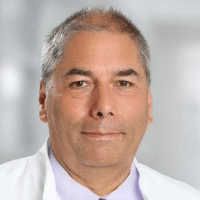

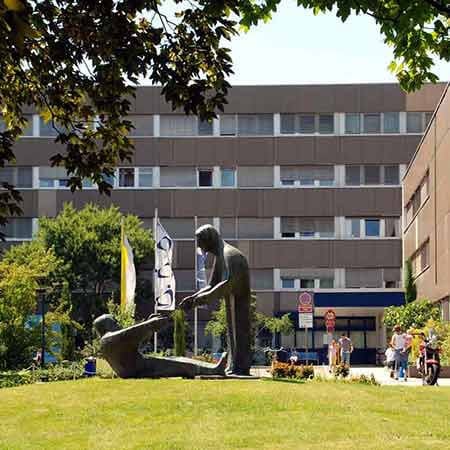
Department of Hematology and Oncology
The Department of Hematology and Oncology treats solid malignant tumors of various localizations, blood cancer, and benign hematopoietic pathologies. A qualified team consisting of oncologists, hematologists, psycho-oncologists, physiotherapists, and experienced nursing staff takes care of the health of patients. Whenever requir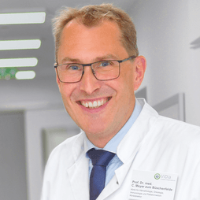

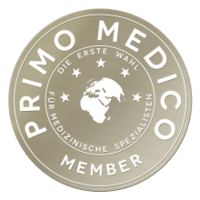
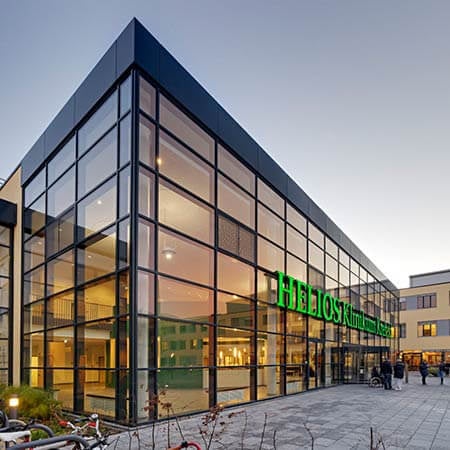
Department of Gastroenterology, Hepatology, Neurogastroenterology, Infectology, Hematology, Oncology and Palliative Care
The Department of Gastroenterology, Hepatology, Neurogastroenterology, Infectology, Hematology, Oncology and Palliative Care offers the full range of services in these medical fields. The department’s specialization covers the diagnosis and treatment of diseases of the gastrointestinal tract, liver, infectious, hematologic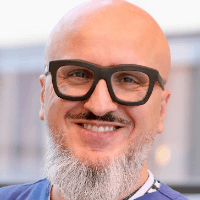
A cancer diagnosis is no longer a sentence. Now it's more of a challenge and a reason to start fighting for your well-being and your future. And it is important to choose the right cancer care tactic to be able to fight the disease. This should be done by the doctors to whom you entrust your treatment. However, a lot depends on you; for example, where and how you choose to start your treatment.
Content
- Why is it best to treat cancer abroad?
- How is cancer diagnosed abroad?
- How is cancer treatment abroad carried out?
- Options for cancer (oncology) treatment in European hospitals
- Most preferred cancer treatment methods abroad
- How is the treatment of cancer stage 4 carried out?
- Where is the best option for cancer treatment?
- How to choose a hospital for cancer treatment abroad?
- How much does cancer treatment cost?
- How to undergo cancer treatment abroad?
Why is it best to treat cancer abroad?
According to statistics, more and more people with cancer are striving to get treatment abroad, in clinics where the approach to clinical diagnosis and treatment of oncopathology is different. The advantages of treatment abroad include:
- High survival rate of cancer patients who undergo modern treatments
- Accurate clinical diagnosis of oncopathology at an early stage
- Accuracy of clinical diagnosis regardless of the location and stage of cancer
- Individual approach in choosing cancer care protocol, taking into account possible risks and complications
- Wide range of treatment methods, technologies, and medications
- Constant monitoring of the patient's condition
- Adjustment of the therapy scheme to the patient’s condition at any stage
- Conducting unique medical interventions, with the possibility of combining them with reconstructive surgery
Statistically, more and more patients are turning to foreign specialists for a second opinion. And this is the first step towards changing doctors, healthcare institutions, and even countries for cancer care.
Diagnosing cancer includes blood tests, US scan, MRI and CT scan, biopsy.
Common symptoms include weight loss, fatigue, and atypical bleedings.
The best cancer treatments are surgery, chemotherapy, radiation therapy, immuno- and targeted therapy.
Germany, Turkey, and Israel.
This depends on the type of treatment. The price of cancer prevention starts at €9,615; the cost of chemotherapy starts at €2,265, etc.
The best hospitals for treatment in Europe are:
- University Hospital Frankfurt am Main
- University Hospital Rechts der Isar Munich
- University Hospital of Ludwig Maximilian University of Munich
- Helios Hospital Berlin-Buch
- Clinic of Advanced Biological Medicine Frankfurt am Main
How is cancer diagnosed abroad?
The high survival rate of patients in oncology departments of foreign clinics is the result of timely detection of pathology, namely at the stage when cancer care offers a high chance for a complete cure. Stage one-three of oncology allows treatment with sparing methods that have minimal side effects.
People who are at risk of oncological diseases should undergo preventive check-ups annually. Clinics in Germany offer medical programs that already include the optimal set of procedures to detect malignant and benign tumors.
How is cancer treatment abroad carried out?
Many countries are actively funding oncological research which allows them to be ahead of the methods of conventional diagnosis and cancer care. Overseas, innovative equipment and medicines are constantly being introduced into regimes of cancer care. Here doctors don't refuse classical methods such as radiation therapy, chemotherapy, and surgery, but give preference to their improved modifications with minimum side effects.
Conventional surgery abroad is replaced by the laparoscopic one, which minimizes the risks of bleeding and trauma to regional healthy tissues, and reduces the rehabilitation period. Local specialists have studied and used such highly effective methods as immunotherapy, brachytherapy, targeted therapy, proton therapy, and hormonal therapy. Preference is given to drugs with a high safety profile and minimal side effects.
Besides, while undergoing cancer treatment abroad, the patient receives qualified help from a psychologist.
Options for cancer (oncology) treatment in European hospitals
Cancer care abroad is a combination of traditional methods and the latest techniques, which always gives positive results and prevents recurrence. Here, different types of chemotherapy, immunotherapy, targeted therapy, and radiation therapy belong to the treatment options.
Chemotherapy is applied both prior to surgical intervention and after it. This method is used in the fight any type of cancer at any stage. Lately, selective chemotherapy has been developed, which is distinguished by its targeted effect on the tumor. It destroys malignant cells but does not affect healthy tissues.
Immunotherapy implies the introduction of biological medicines that help the body's immune system recognize pathological cells. These drugs activate specific receptors on the cellular surface, serving as a signal molecule for immune cells.
Targeted therapy implies the injection of monoclonal antibodies that recognize cancer cells. Such selective influence is due to the ability of the medicine to detect specific proteins present in a tumor.
There’s also a method of radiofrequency ablation that destroys a tumor with the help of high temperature. A cryotherapy method, on the contrary, exposes a neoplasm to low temperatures.
The therapeutic regimen is developed by several doctors of related specialties, always taking into account the results of the examination and the patient's condition.
Most preferred cancer treatment methods abroad
The most preferred methods of cancer treatment abroad are:
- Organ-preserving interventions
- Targeted therapy
- Immunotherapy
- Proton therapy
- Individualized combined cancer care
Targeting cells that carry genetic mutations without affecting healthy cells is what targeted therapy is all about. There are more and more targeted drugs for all cancer types developed annually. Some researchers say that in the era of chemotherapy half of patients with advanced cancer died within a year of making the clinical diagnosis, today thanks to the modern targeted treatment they live 3-4 times longer.
The insidious thing about cancer is that altered cells secrete special proteins that make them invisible to the immune system. Immunotherapy blocks this invisibility mechanism and allows the immune system to recognize and attack the tumor even at the cancer stage 4.
In foreign medicine, doctors talk about an individualized approach to the choice of treatment tactics, where the morphology of the tumor, its sensitivity to medications, and the prognosis of the disease are taken into account. Currently, many cancer cases are subject to genetic and molecular tests to see if a person has a specific mutation, and only then a combined therapy is selected, as it works best in many cases.
Organ-preserving interventions are one of the key areas of surgery abroad. Fantastic things are happening here. For example, one of the most common cancers in children is bone sarcoma. Previously, such patients were usually at risk of amputation. Now, prior to surgery, oncologists model a fragment of the affected bone and transplant it to the patient, replacing the diseased area with it and preserving extremities.
Traditional radiation therapy destroys tumor cells, but radiation damages healthy cells at the same time. In this regard, proton therapy is more sparing. The protons don't disperse into the tissue, but reach the tumor and attack cancer cells without harming healthy ones.
How is the treatment of cancer stage 4 carried out?
Regardless of the size of the primary tumor, the presence of metastases indicates stage 4 cancer. It means that cancer has spread beyond the primary focus and has become life-threatening. A patient can be diagnosed with cancer stage 4 even with an undiagnosed primary tumor.
In the treatment of cancer stage 4, the following methods are used:
- Polychemotherapy in courses, according to the sensitivity of the tumor to the drugs
- Radiation therapy
- Hormonal therapy
Another leading method in the treatment of cancer stage 4 is radiosurgery when a beam of rays from a Gamma knife or Cyberknife machine is directed to the neoplasm under the imaging guidance. Already during the first sessions, metastatic cancer is destroyed and healthy tissues remain intact. Radiosurgical intervention is performed using the most modern equipment, which ensures high precision of treatment and excludes harming the healthy tissues.
An important place in the treatment of cancer stage 4 in German hospitals is occupied by modern immunotherapy, which includes many drugs creating active and passive anti-cancer immunity. The latest advances of this method are related to the technology of monoclonal antibodies that are capable of finding cancer cells throughout the body and blocking them. Monoclonal antibodies are also used in combination with radioisotopes and chemotherapy drugs, delivering them to cancer cells. With the advent of this technology, treatment results for metastatic cancer have improved dramatically.
Where is the best option for cancer treatment?
In cancer treatment, early clinical diagnosis and the right treatment protocol are important. But where to get quality cancer care abroad?
Germany is at the forefront of cancer treatment. Local specialists are proficient in the drug therapy and operative treatment of all types of oncology of the cervix, breast, intestine, and lungs. They also successfully treat thyroid cancer, prostate cancer and neuroendocrine tumors. This includes radionuclide therapy with iodine isotope (radioiodine), Lutetium-177 PSMA therapy and Lutetium-177 DOTATATE therapy.
German hospitals offer effective comprehensive programs of early detection of malignant diseases and medical care according to German protocols at stage 1-3 and at advanced stages.
Israel also has a well-deserved reputation as a country with a very high level of medicine in general and successful experience in fighting cancer. This country performs unique surgeries for tumor removal.
Switzerland is a country with developed medicine, where particular attention is paid to cancer research. Its clinics have state-of-the-art equipment enabling them to provide a wide range of services to local and foreign patients.
The same can be said of South Korea, Japan, Spain, Turkey, and the USA, and some other countries.
How to choose a hospital for cancer treatment abroad?
If you have decided to undergo cancer treatment abroad, it’s important to find a clinic with certification and high treatment success rates. You should be interested not so much in the cost of treatment as in the reputation of the clinic, the technical equipment of the medical facility, and the experience of healthcare specialists. Another important issue is the clinic's experience of caring about foreign patients. Personnel of the clinic must know all the peculiarities of the treatment of patients from abroad.
Another question is which clinic for cancer treatment is it better to choose: the state or the private one? The level of medicine is equally high in state and private healthcare facilities. Everywhere you will communicate with medical coordinators who will help you to solve all issues related to the organization of treatment, accommodation, and interaction with doctors.
The best German hospitals for cancer treatment are:
- Medias Cancer Clinic Burghausen, Germany
- University Hospital Ulm, Germany
- University Hospital Freiburg, Germany
- University Hospital Frankfurt am Main, Germany
- University Hospital Heidelberg, Germany
- University Hospital Wuerzburg, Germany
- University Hospital RWTH Aachen, Germany
You can learn more about the best hospitals in the country of your liking on the Booking Health website.
Fighting Lymphoma Abroad: Moldovan Patient's Inspiring Recovery Story
How much does cancer treatment cost?
While choosing cancer treatment abroad, the cost of treatment is often a secondary factor. However, prices for the same course of treatment may vary from clinic to clinic and from country to country.
Cancer treatment in certain hospitals abroad may be quite expensive. And if we are talking about modern treatment regimens, the cost of treatment can increase by a magnitude.
For example, the cost of a proton therapy treatment in various German hospitals ranges from 84,000 EUR to 87,000 EUR.
Innovative targeted therapy and immunotherapy are also expensive, but at the same time cost-effective. The cost will not vary much depending on the country or clinic. Here too, the level of additional costs may be important for the patient, including the prices for hospitalization and unscheduled medical procedures. In the USA and Switzerland these expenses will be higher; in Germany they are about 30% lower.
It's about the same in terms of the prices for surgery. Because of surgeons' large fees in the US, the cost of treatment with surgery is the highest. In German hospitals, prices are 30% lower.
You can find more information about prices for cancer treatment abroad on the Booking Health website.
How to undergo cancer treatment abroad?
Booking Health will help you solve all questions related to visa issuing and organization of flights, transfers (including special medical transport), and hotel reservations. We will also provide you with a professional interpreter. Basically, Booking Health will assist you in solving any issues related to the organization of the treatment or examination.
We will help you to choose the most suitable medical center for you. Choosing by the advice of acquaintances or applying to various clinics you waste precious time.
Fill in the request form on the Booking Health website, so that we can contact you and provide you with information you need.
Authors:
The article was edited by medical experts, board certified doctors Dr. Vadim Zhiliuk and Dr. Nadezhda Ivanisova. For the treatment of the conditions referred to in the article, you must consult a doctor; the information in the article is not intended for self-medication!
Sources:

